Computing
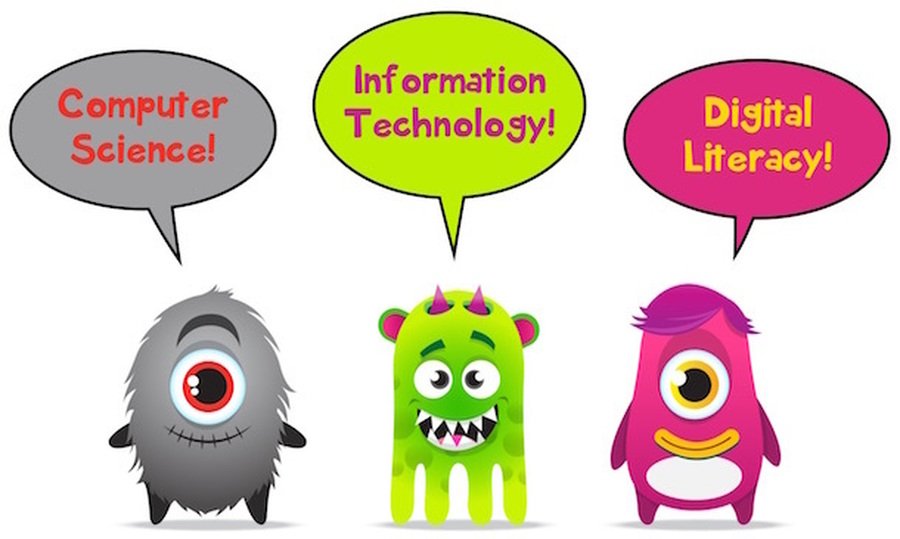
Our Vision (Intent):
Our vision is to embed computing in as many learning opportunities as possible, providing our children with concrete experiences of when and how they can use digital media in different aspects of their lives. In the ever-changing digital world, we aim to provide all children with not only the skills to use the technology that exists today, but the life-long thinking skills and passion to continue to develop their love for computing through secondary school and beyond. At St Ignatius, we promote digital citizenship through modelling how social media should be used responsibly with a strong focus on creating a good digital footprint.
The Internet is an amazing source of information which enhances learning in many ways. Being ‘e-safe’ means teaching our children what to do when online and faced with strangers asking for details when gaming, if they see inappropriate images or if they experience cyber-bullying. We use a variety of planning materials and other resources to teach our children to be digitally aware.
Curriculum Overview (Implementation) (Key Stage 1)
At St Ignatius, we use the 'Teach Computing' scheme in Years 1 and 2.
The Teach Computing curriculum is designed around the three strands referenced in the National Curriculum: computer science, information technology and digital literacy.
Throughout KS1, children revisit knowledge and skills in five key areas linked to these three strands: computer systems and networks; programming; creating media; data handling and online safety. The cyclical route through the curriculum ensures that prior knowledge and skills are revisited to ensure retention in long-term memory and built upon to develop increasingly sophisticated understanding.
Computing is taught weekly in half-terms. Computing lessons take place in the ICT Suite with children accessing a range of devices such as Beebots, iPads or Google Chrome Books. Computing lessons at St Ignatius incorporate the following elements: retrieval practice; explicit teaching of new vocabulary; teacher modelling and questioning and a range of generative learning tasks – some independent and some undertaken in partnerships.
The Teach Computing curriculum is clearly and robustly planned using excellent subject knowledge and supports teachers’ ongoing professional development. This supports all teachers at St Ignatius to have strong subject knowledge across the computing curriculum and to know how new learning builds on prior understanding and towards future knowledge and skills.
Curriculum Overview (Implementation) (Key Stage 2)
In Key Stage 2 specialist staff from Junior Jam deliver our Computing curriculum. Their programme teaches pupils to create programs, systems and a range of content while encouraging them to express themselves and develop their own ideas. There is an emphasis on how what is learnt can be used in a future working environment, as our world is becoming increasingly rich with technology;children are learning about the possibilities and careers that may be linked with their studies.
Using technology safely is always a priority and is taught throughout each year group.
Computing Documents:
Junior Jam Computing Documents
Teach Computing Documents
Computing Intent
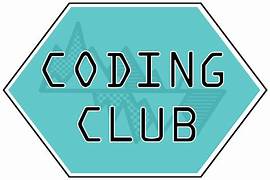
We run a weekly coding club for pupils in Years 4-6. They worked hard this year to design and create animations to promote Internet Safety Week. Click each link below to explore them:
https://scratch.mit.edu/projects/952113288
https://scratch.mit.edu/projects/952207766
https://scratch.mit.edu/projects/952207604/
https://scratch.mit.edu/projects/952210132
https://scratch.mit.edu/projects/952212308
At St Ignatius we have recruited Year 5 and 6 pupils to be our digital leaders.
Internet Safety Week 2024- Competition Winners!
KS1- Naomi (1H), Khadija (1M), Soliana (2H) and Emi (2L):
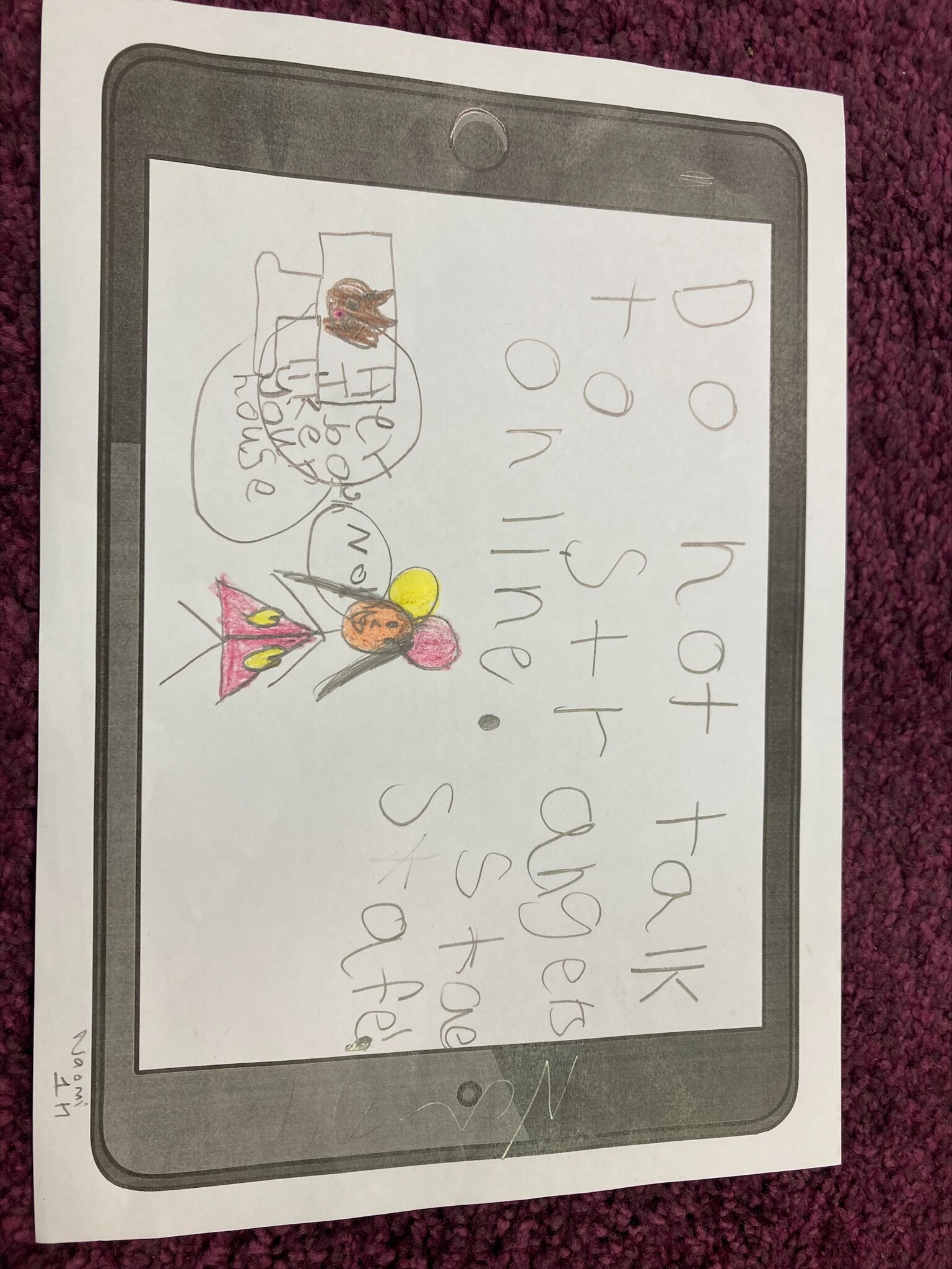

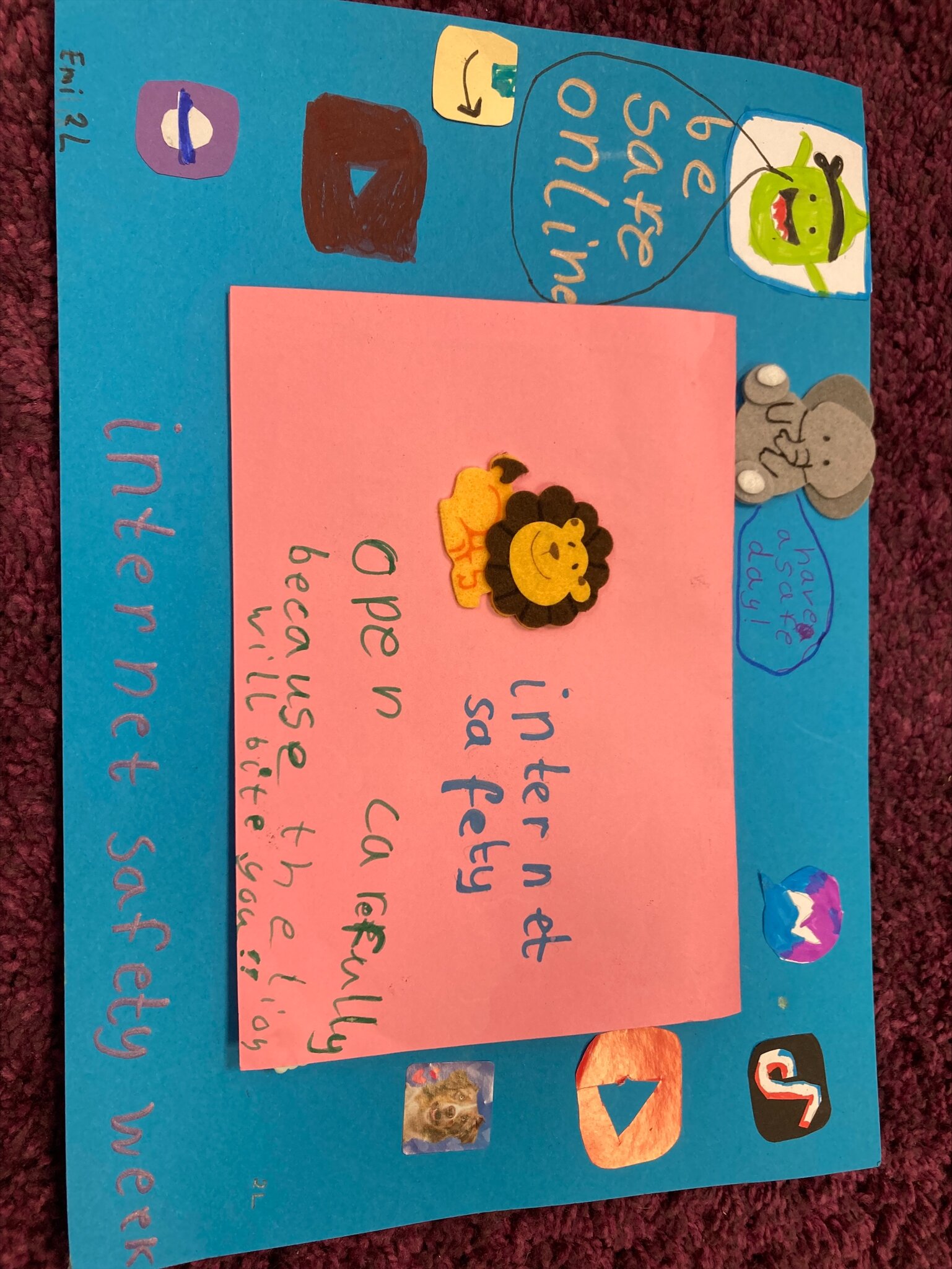

KS2- Lena (3R), Violeta (3K), Triana (4C), Angel(4D), Shani(5H), Lexie (5C), Giulia (6M) and Abigail (6Q):
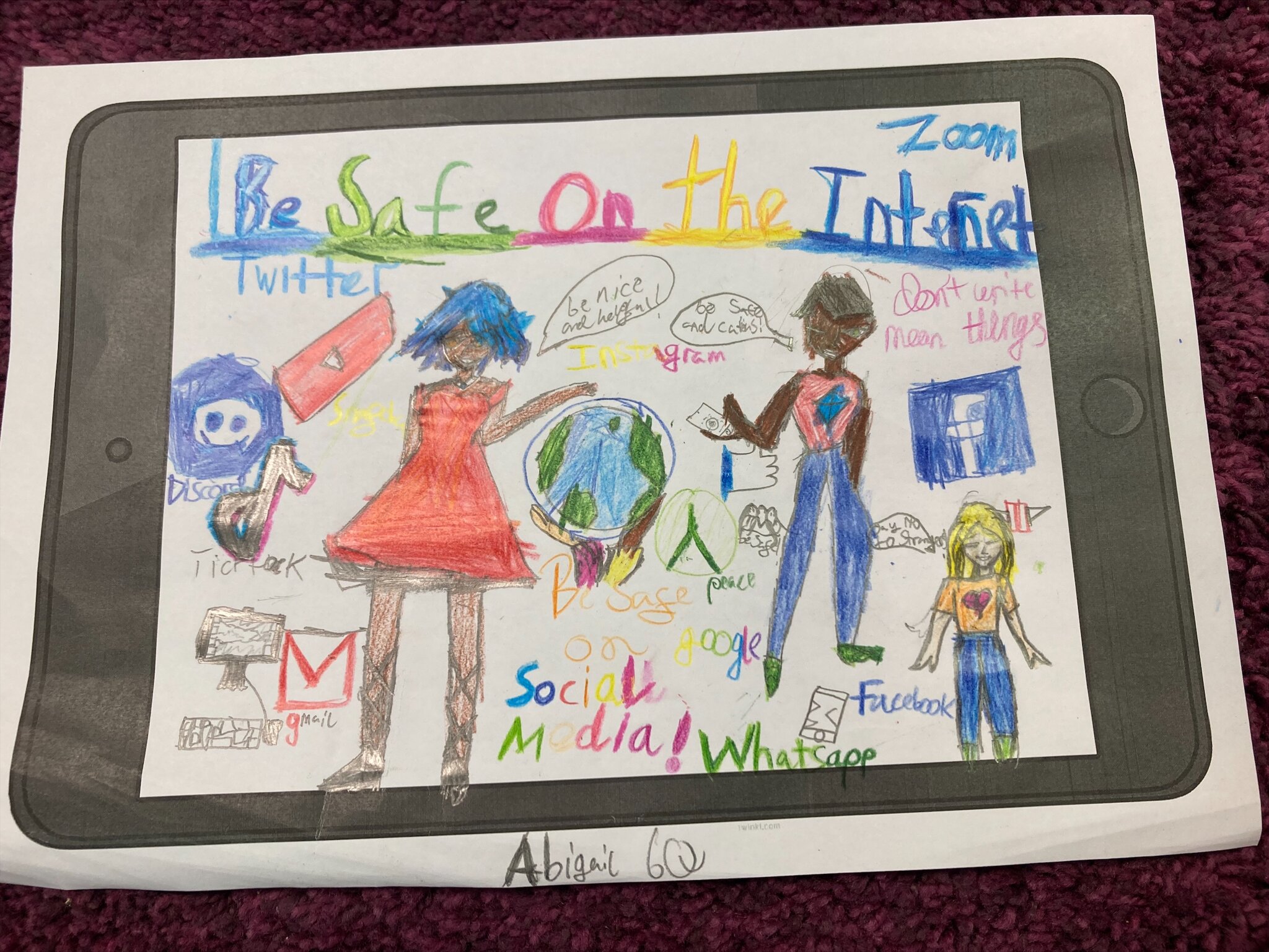
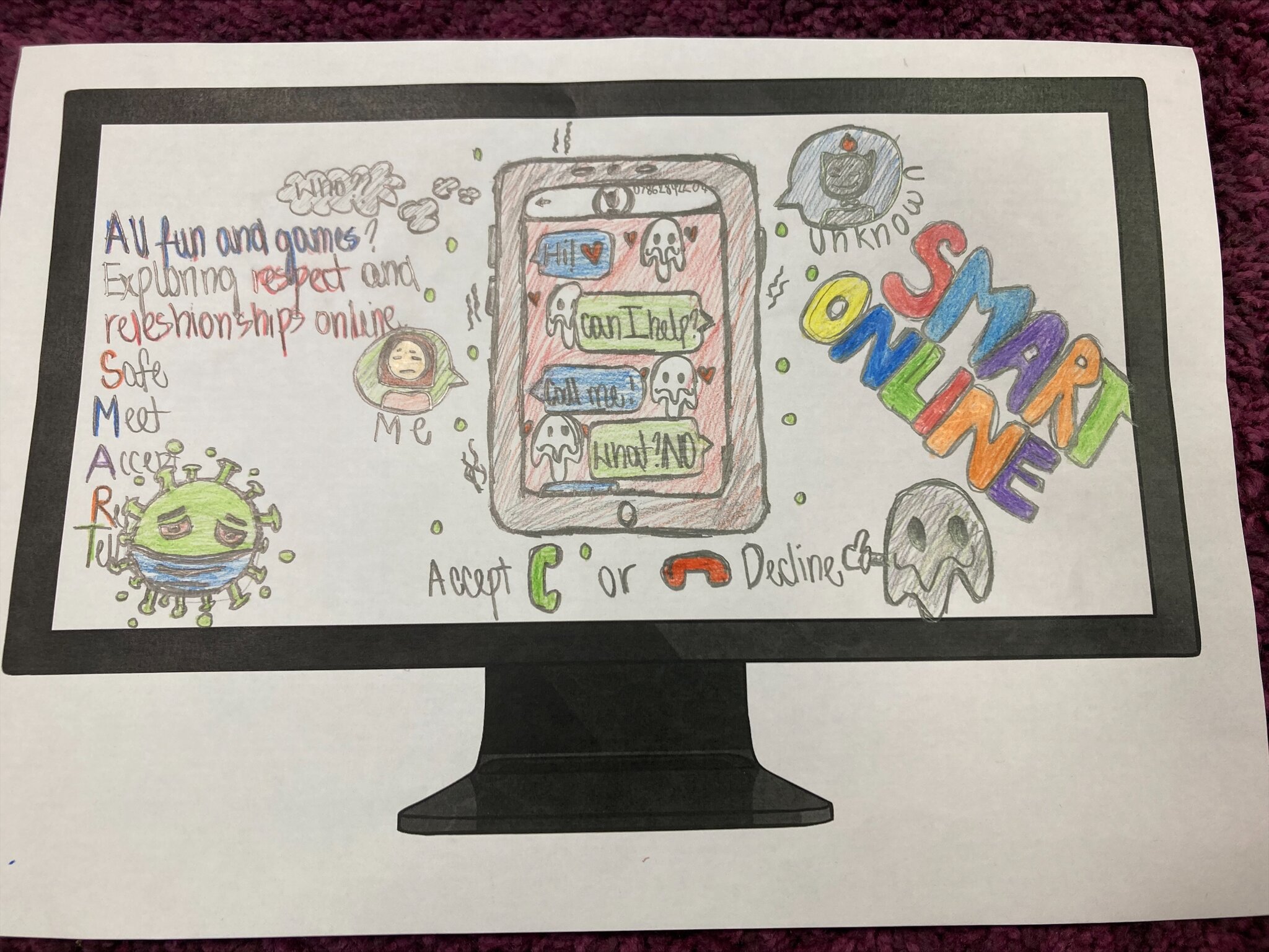
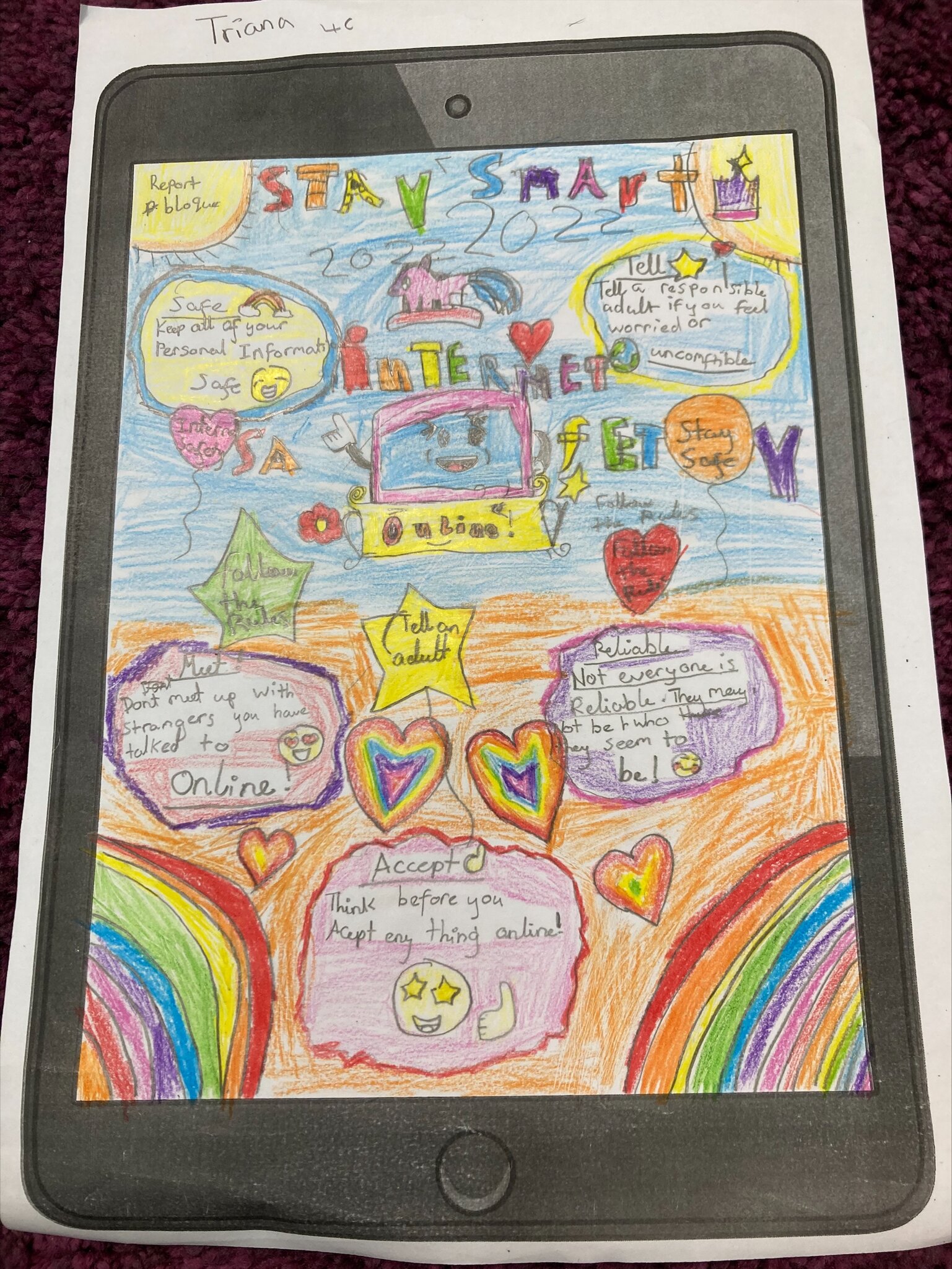
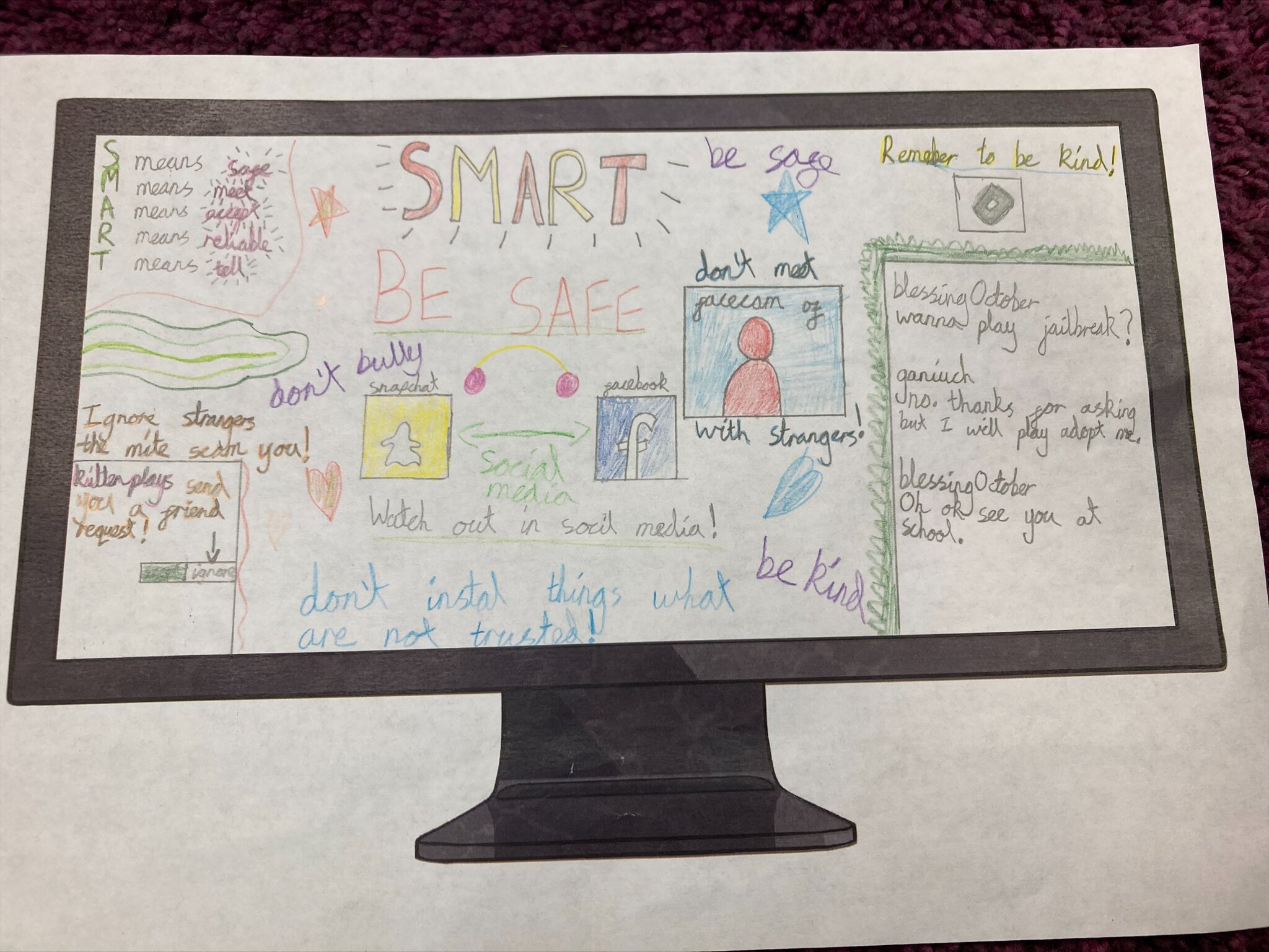
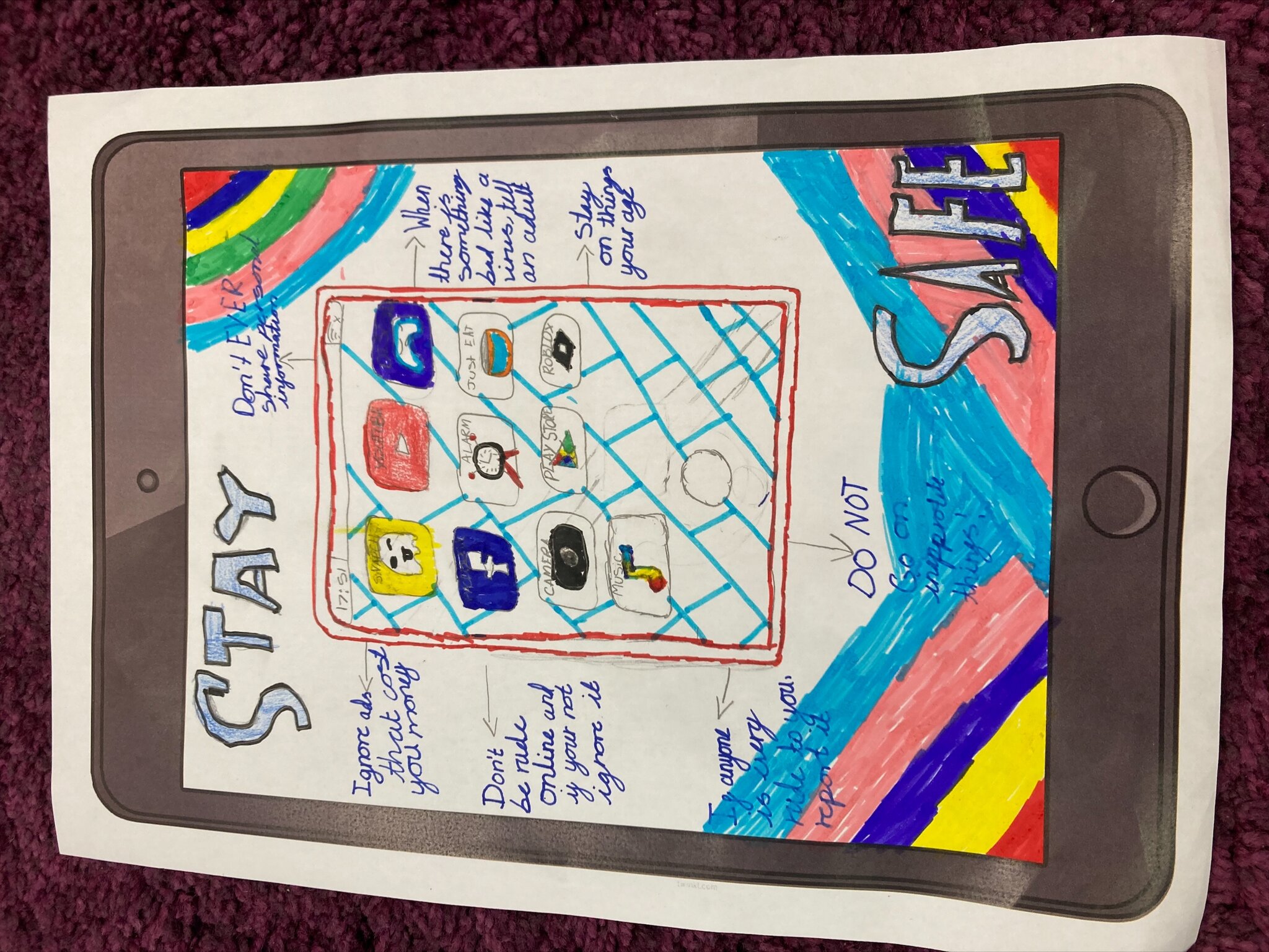

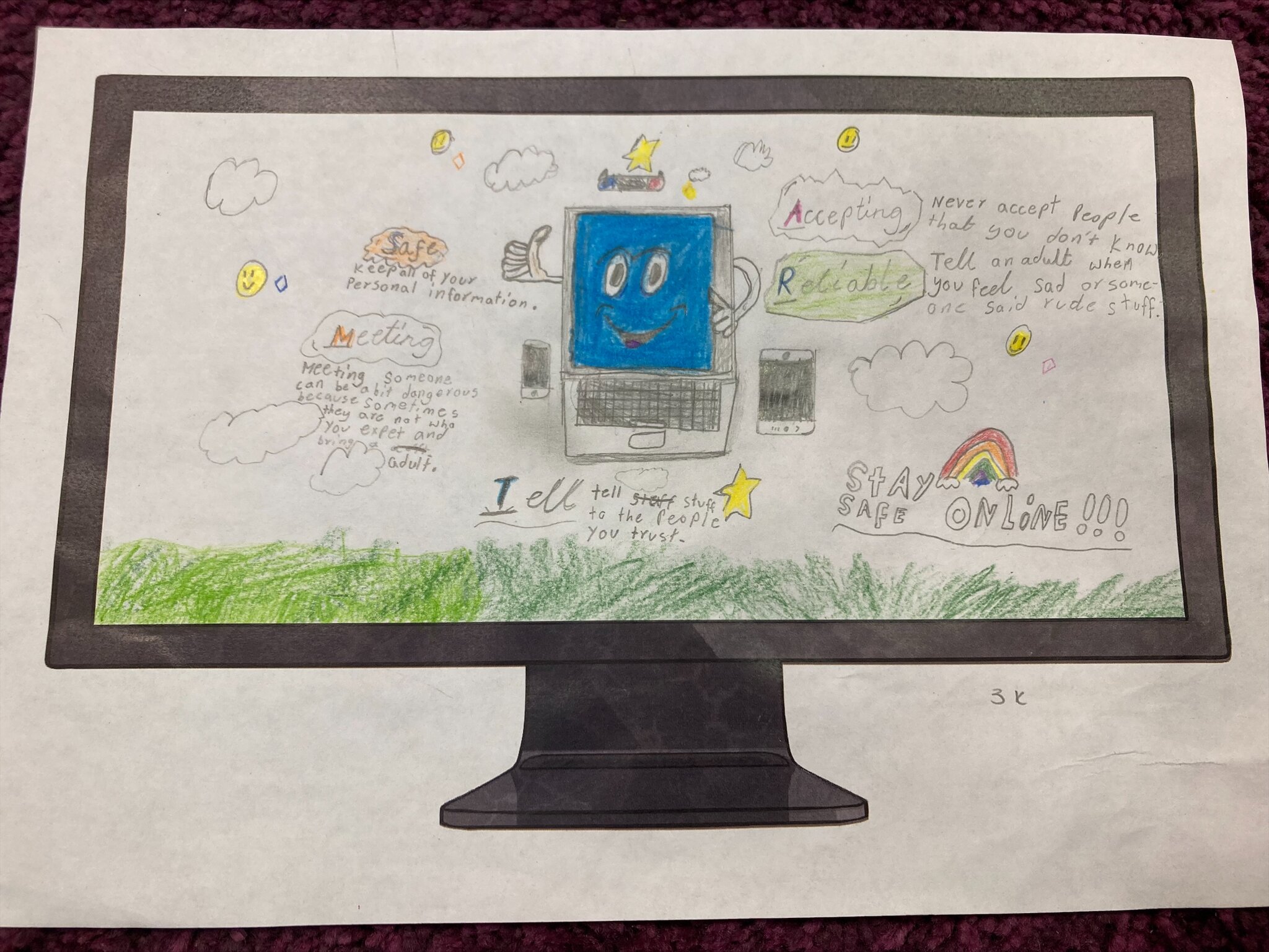
Digital Parenting E Safety Magazine (Vodafone)
This magazine keeps you up to date with E Safety issues that may impact children on social media and other software and technology. See Digital Parenting Magazine at this link http://parentzone.org.uk/article/have-you-heard-about-parent-info.
COMPUTING USEFUL LINKS:
Barefoot (KS1 and KS2)
https://www.barefootcomputing.org/homelearning
Downloadable activities and games for children, links to live lessons and a guide for parents - includes cross-curricular lesson plans and resources that unpack computational thinking in a range of subjects.
Code Club (KS2)
https://projects.raspberrypi.org/en/codeclub
Projects and activities for home learning and a parent guide.
UK Safer Internet Centre (KS1 and KS2)
https://www.saferinternet.org.uk/advice-centre/young-people/resources-3-11s
Online safety resources aimed at 3 -11 year olds.
STEM Learning e-Library (KS1 and KS2)
https://www.stem.org.uk/primary-computing-resources
An online resource bank, which links to resources on external websites. The site features a live chat function offering support from subject experts. New home learning resources are being developed.
Raspberry Pi Foundation – Digital Making at Home (KS2)
https://www.raspberrypi.org/at-home/
Join the weekly code-along using open projects based on a weekly theme, with different levels available for all abilities, allowing you to be open-ended with opportunities for making and creativity.
Computing at School - Home Learning (KS1 and KS2)
https://www.computingatschool.org.uk/homelearning
Information and links to a range of at home computing activities
Thinkfun – All ages
http://info.thinkfun.com/stem-education/6-unplugged-coding-activities-for-hour-of-code
Unplugged activities for children to learn the basics about algorithms without a computer.
Things to do
Computing (coding) is important for children as it will help improve their mathematics and writing skills, it will give them valuable life skills, which will be used eventually in the workplace. Develop your child’s skill by start learning the basics of coding; you do not even need a computer! Problem solving, thinking creatively, and it helps them to develop resilience.

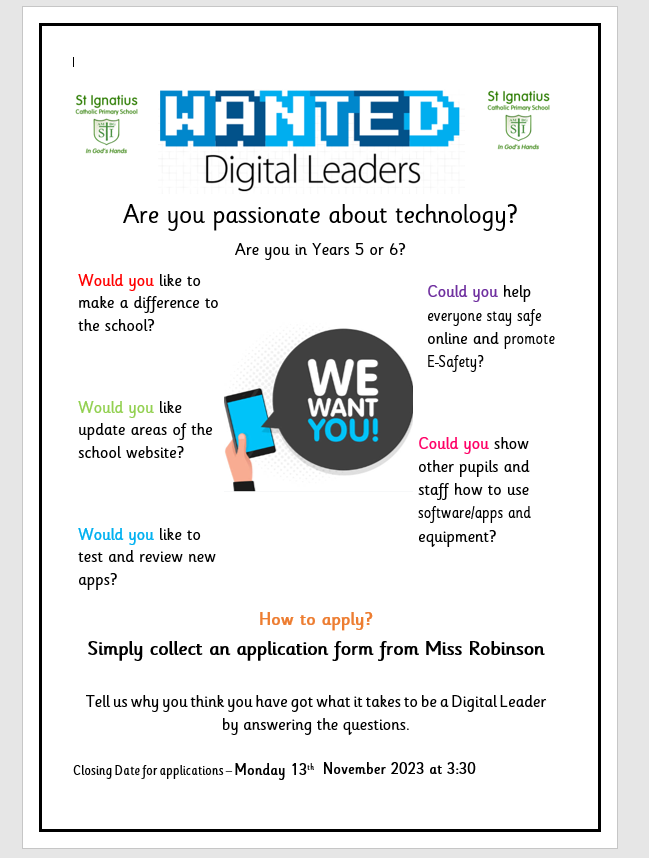


_0.jpg)
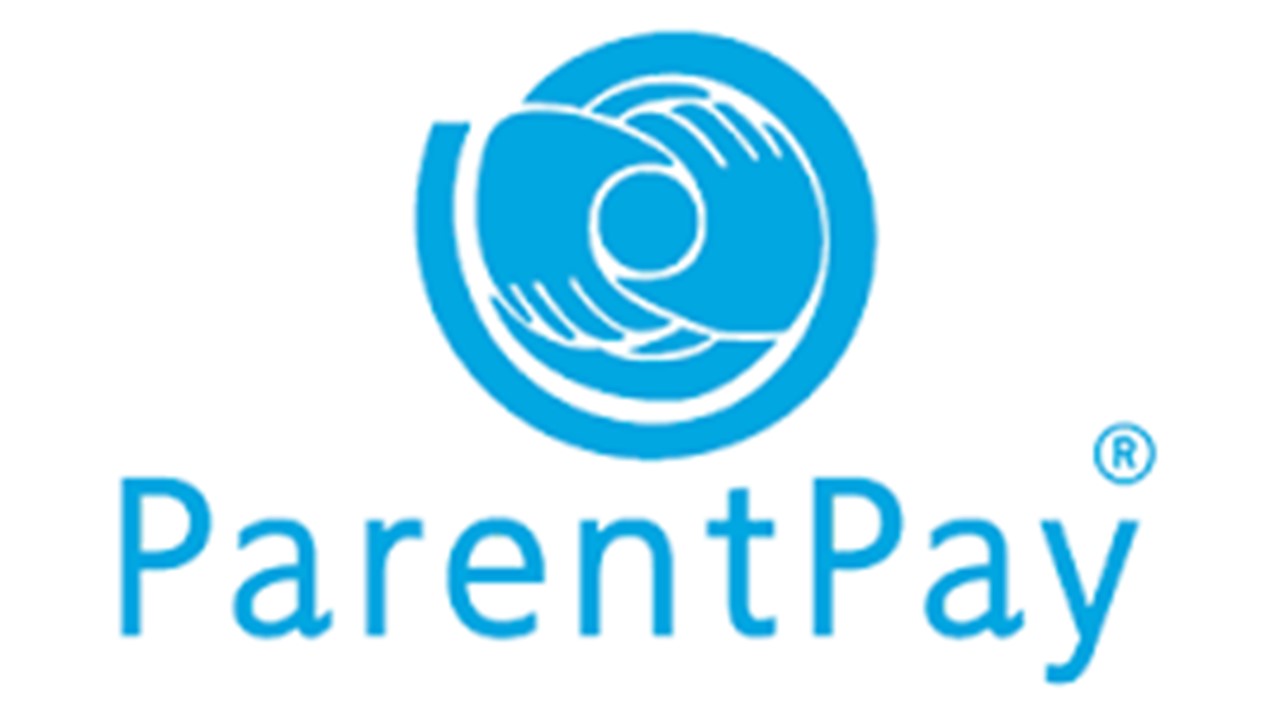
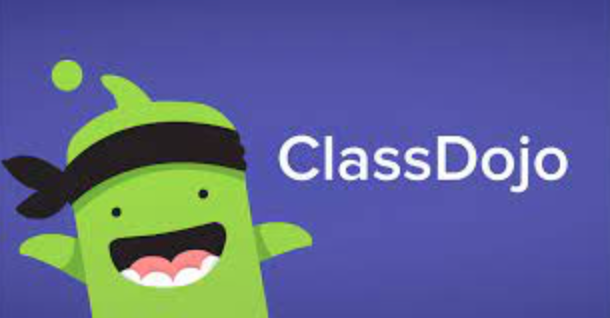
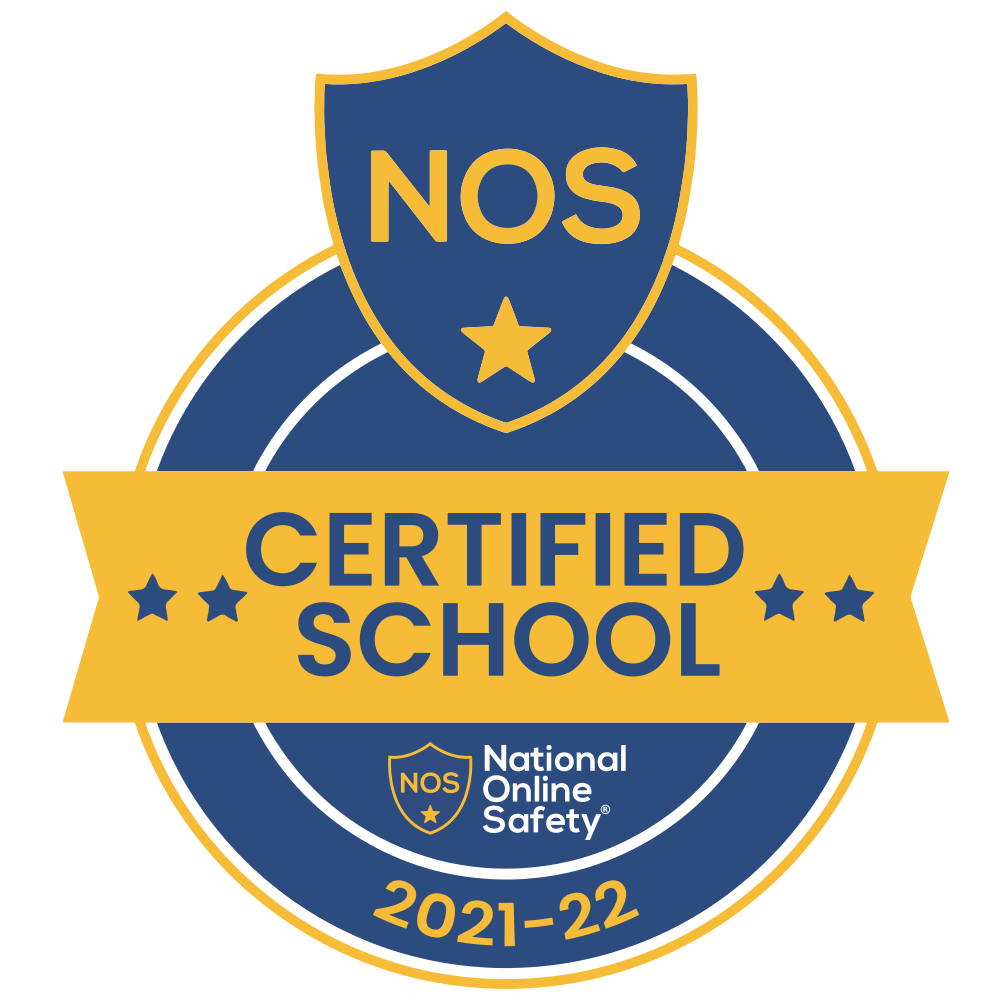
.jpeg)
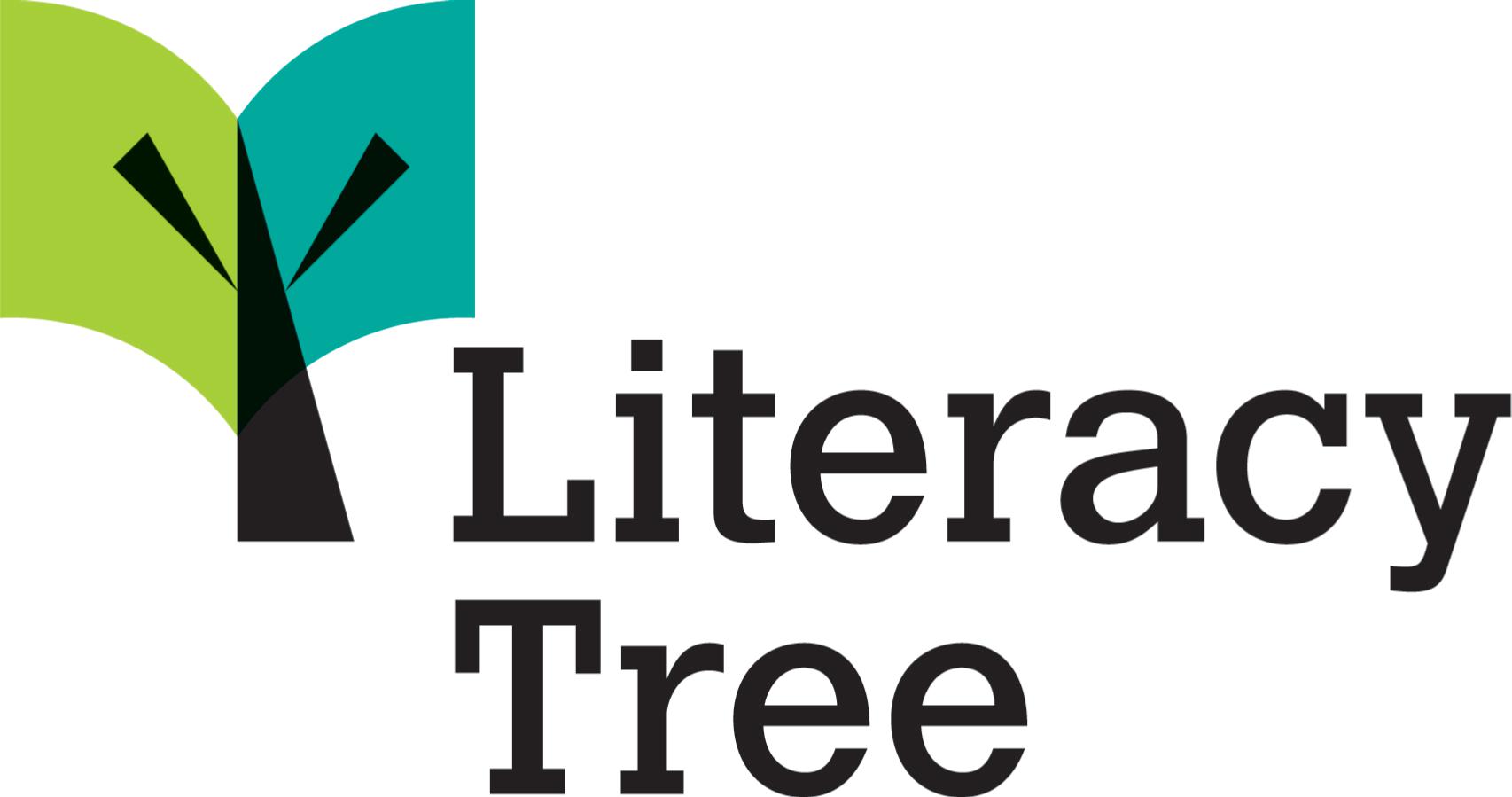

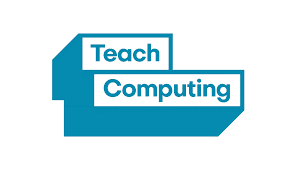
.jpg)
.png)
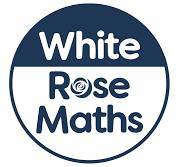
.jpg)

